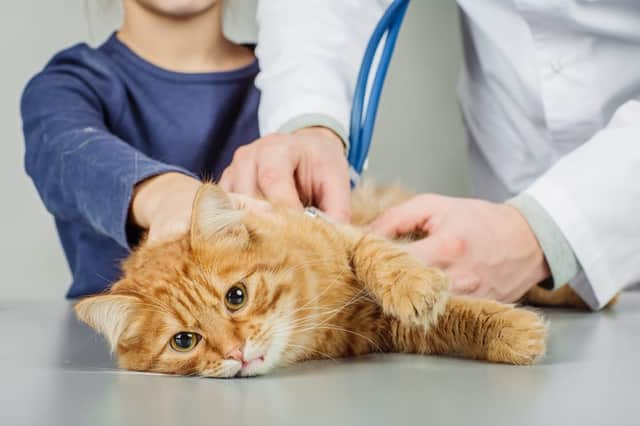A cat has tested positive for coronavirus in the UK - here's what pet owners need to know


The UK’s Chief Veterinary Officer has confirmed that coronavirus has been detected in a pet cat - but there’s no evidence of animal to human transmission.
The cat, belonging to owners in Surrey, was confirmed to have been infected by the virus that causes Covid-19 at the Animal and Plant Health Agency (APHA) laboratory in Weybridge on Wednesday 22 July.
Advertisement
Hide AdAdvertisement
Hide AdThe infection is the first coronavirus case to have been officially confirmed in an animal in the UK.
How did the cat contract the virus?
The cat is believed to have caught the virus from its owners, who had previously tested positive for coronavirus, and suffered only mild symptoms.
Both the cat and its owners have made a full recovery, with no transmission of the virus to other animals or people in the households.
The government has assured the public that there is no evidence so far to suggest that the cat transmitted the virus to other animals or people.
Advertisement
Hide AdAdvertisement
Hide AdChief Veterinary Officer Christine Middlemiss said: “This is a very rare event with infected animals detected to date only showing mild clinical signs and recovering within a few days.
“There is no evidence to suggest that pets directly transmit the virus to humans.
“We will continue to monitor this situation closely and will update our guidance to pet owners should the situation change.”
Can animals contract coronavirus?
There have been a very small number of confirmed cases in pets in other countries in Europe, North America and Asia, which suggests that animals can contract coronavirus.
Advertisement
Hide AdAdvertisement
Hide AdHowever, Yvonne Doyle, Medical Director at Public Health England, assured the public that such infections are rare:
“This is the first case of a domestic cat testing positive for COVID-19 in the UK but should not be a cause for alarm,” she said.
“The investigation into this case suggests that the infection was spread from humans to animal, and not the other way round. At this time, there is no evidence that pets can transmit the disease to humans”.
The World Organisation for Animal Health says:
“Although several animal species have been infected with SARS-CoV-2, these infections are not a driver of the COVID-19 pandemic; the pandemic is driven by human to human transmission”.
Do animals show symptoms of coronavirus?
Advertisement
Hide AdAdvertisement
Hide AdPDSA, charity for animals, says that the majority of animals do not show symptoms of coronavirus:
"The majority of the animals that have tested positive for the Covid-19 virus have had no symptoms or signs of illness at all. Those who did show symptoms had mild respiratory signs such as coughing or breathing faster than usual."
Should I be taking precautions around animals?
Public Health England is currently advising people to wash their hands regularly, including before and after contact with animals of every kind, from pets to farm animals.
The World Organisation for Animal Health recommends avoiding “kissing, being licked by animals, or sharing food”, as well as advising anyone infected with coronavirus to keep a distance from pets, the same way you would from other people in your household.
Advertisement
Hide AdAdvertisement
Hide AdIf you are the sole owner of the pet, the organisation recommends maintaining a distance, practicing good hygiene and wearing a mask if possible.
What should I do if I suspect my pet has the virus?
You should contact your veterinarian by phone and seek their advice.
Avoid taking your pet into a clinic or other public areas to limit the possible spread of coronavirus.
Your vet may recommend isolating your pet, which means keeping them away from others - human and animal - in your household.
This means keeping animals that might normally roam outside within your home.